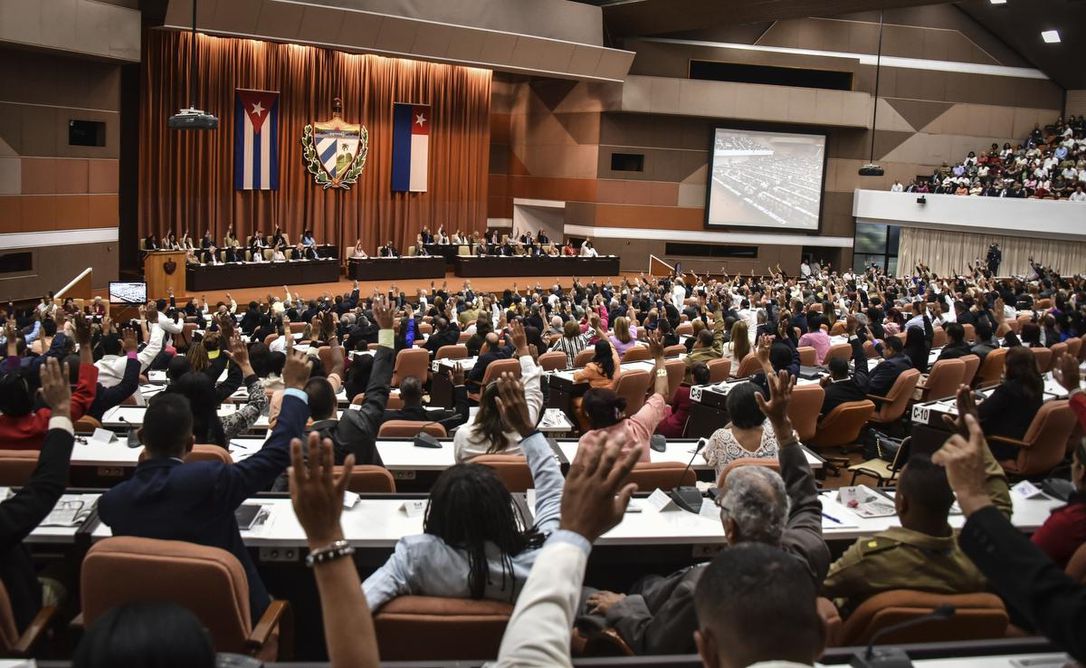Cuba’s Capitalist Shift?
July 17, 2018 | Expert Insights

Cuba is set to officially recognise the free market and private property for the first time, under sweeping reforms to its constitution that are intended to boost the island’s economy.
Cuba’s current Soviet-era constitution only recognises state, cooperative, farmer, personal and joint venture property.
Background
Indigenous Arawak people of Cuba lived in small farming villages before their Spanish colonisation, led by Diego Velasquez. The onslaught of diseases weakened the tropical Carribean island, which assisted its transformation into a plantation colony and the eventual extinction of the Taino culture. In the 19th century, following the Spanish-American war, the US was split between slave-owning southern states against the northern states who opposed following an imperialistic path like their European counterparts. Cuba was eventually granted quasi independence with US control over foreign affairs, large sugar plantations and the infamous Guantanamo Bay.
For the next half-century the two countries cooperated, with the US heavily investing in the economy and preventing rebellions. Under Fulgencio Batista’s military rule, crime syndicates rose rapidly alongside the export of famous cigars and literature into the world market. However, increasing unemployment and poverty incited a successful guerrilla revolution against Batista led by the Castro brothers, Che Guevara, Cienfuegos and Bosque. Although the US opposed Batista, Castro’s socialist policies and relations with the Soviet Union caused the infamous US-led Bay of Pigs incident, the successive Cuban Missile Crisis and repeated attempts to assassinate Castro (including exploding seashells and chemicals to make his beard fall out).
Thousands of Cubans fled to Florida when Castro eased restrictions on travel, however, the tiny island remained under the US embargo for decades. The 1996 Helms-Burton Act, which applied the embargo to foreign countries that traded with Cuba, and was issued in retaliation after Cuba shot down two U.S. civilian airplanes. Economic inefficiency increased with the dissolution of the Soviet Union in an era known as the “Special Period.”
In 2008, Fidel Castro handed the reigns of the government to his brother Raul, the same year three different hurricanes struck the island. US food aid continues to this date. Although the socialist nation remains diplomatically isolated, by 2012 US embargo was relaxed and Cuban exit-permit system was abolished. Under the Obama administration, relations with Cuba were re-established. Since 2011, the government has instituted reforms which the late Fidel Castro vehemently opposed.
Analysis
The new constitution will radically alter the socio-political environment of one of the last remaining socialist nations in the world. It is expected to be approved by a vote at the national assembly next week. The draft constitution with 224 articles will then be put to a popular referendum for final approval later this year.
According to the 2011 Cuban Communist Party Congress’ outline for the reforms, the Lineamientos, the goal is not to substantially transform the actual model but to “update it,” keeping the hegemony of state central planning and property over the market and non-state property. Former president Raul Castro has stated the changes would be “structural,” a far-cry from the radical economic overhauls seen across Latin America.
President Miguel Diaz-Canel, who took oath in April, will remain as President once the new constitution is approved. Presidents will continue to serve five-year terms. Powers are set to be divided between the President and the newly created office of the Prime Minister. The Communist Party is expected to remain the dominant political force.
“The experiences gained in these years of revolution” and “the new paths mapped out” by the Communist Party are some of the reasons for reforming the constitution, the official Granma newspaper said.
Fidel Castro banned property sales in 1959, but this was amended in 2011. Cuba experiences virtually no homelessness as the government was expected to provide housing, free of tax, to all citizens until a reform came which allowed Cubans to build their own homes. If the new constitution is passed, it will open the country to foreign investment and protection of private entrepreneurs, however it reaffirms the importance of central planning and state enterprises.
It is important to note that private property, relating to means of production, is different from personal property which includes non-capital possessions. Cuba does not explicitly recognise private entrepreneurs, they are instead categorised as “self-employed.” A series of reforms were introduced in April on agricultural sales and pricing, income and property tax, foreign investment, reorientation of state companies authority and small companies. Discrimination on the basis of sex, disability, race and ethnicity has been banned.
Counterpoint
The structural reforms undertaken by Raúl Castro have been generally positive and the most important, to date, under the Cuban revolution. However, suffocating state regulations, obstacles and taxes have created disincentives and impeded the progress necessary to achieve substantial effects.
Assessment
Our assessment is that the new constitution will overhaul the ailing Cuban economy and government within a socialist framework. We believe that the gradual implementation of structural reforms will protect the working classes and prevent large-scale privatisation of important assets like mines or oil reserves, however, regulatory obstacles may weaken the momentum. We feel that the Cuban people will welcome the change as it provides greater individual freedom in the market and encourage foreign investment in non-core sectors.








Comments